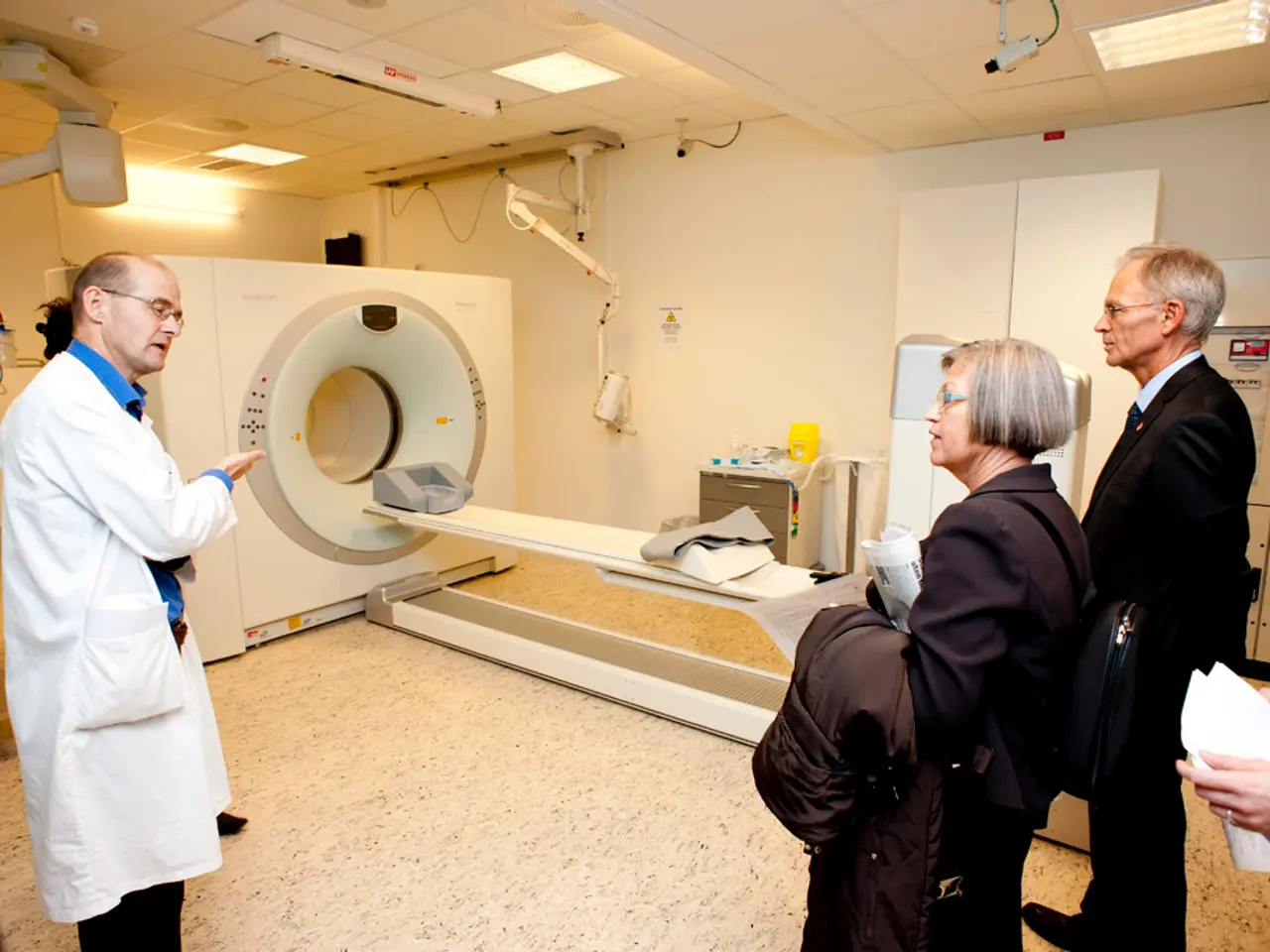Expanded number of foreign trainees in care services - Increased Number of International Trainees under Supervision
A significant increase in the number of international trainees in the healthcare sector has been observed in Berlin and Brandenburg, Germany, in recent years. This trend can be attributed to several key factors related to Germany's apprenticeship and training system.
The country's Dual Ausbildung System, which combines practical workplace training with theoretical education, has attracted many international students. This system offers a well-structured path for career development and provides a monthly stipend of €900-1,300, making it a more financially viable option compared to traditional university education.
Moreover, the high job placement rate—around 85% of trainees securing permanent employment with their training companies after completion—provides financial security and career prospects, making it an appealing choice for international trainees.
The Ausbildung system is available in over 350 career fields, including healthcare and care professions, reflecting a broad demand for skilled workers in these sectors. With more than 40,000 open nursing jobs, the availability of opportunities further incentivizes international applicants to enter the care professional sector in Berlin and Brandenburg.
Government and institutional support also play a crucial role. The regions of Berlin and Brandenburg, as part of Germany's federal system, benefit from policies encouraging integration and training of international healthcare workers, addressing workforce shortages in care professions amid an aging population and increasing healthcare needs.
The opportunity to work 3-4 days per week at actual healthcare companies or facilities supplies trainees with valuable practical skills and work experience, enhancing their employability in Germany’s healthcare system.
Demographic trends such as an aging population in Germany have created an urgent demand for qualified care professionals, driving recruitment and training efforts regionally in Berlin and Brandenburg as well as nationwide.
In Berlin, the number of international healthcare trainees has more than tripled since the introduction of the generalist nursing training in 2020, from 2,137 persons in 2020 to 6,546 persons in 2024. In 2024, the number of trainees in the care sector in Berlin was 11,028, with 36% of these trainees holding foreign citizenship.
In Brandenburg, the number of international healthcare trainees has also increased, from 1,447 in 2020 to 3,980 in 2024. In 2020, there were 6,210 trainees in the care sector in Brandenburg, with 18% of these trainees holding foreign citizenship.
The training to become a care professional is the most frequently chosen among both German and foreign trainees in healthcare. This surge in trainees suggests a growing interest in the care profession in both Berlin and Brandenburg.
[1] Source: various regional and national statistics on apprenticeships and training in healthcare professions.
- The increase in international trainees in the healthcare sector in Berlin and Brandenburg, Germany, can be linked to the country's community policy that encourages vocational training in over 350 career fields, including science and medical-conditions focused areas like chronic diseases, cancer, respiratory conditions, digestive-health, eye-health, hearing, and neurological-disorders.
- The Dual Ausbildung System, offering a blend of workplace-wellness and education-and-self-development, provides practical skills and financial stability through a monthly stipend of €900-1,300, making it an attractive option for learning and career-development.
- This system equips trainees with skills that are crucial for various health and wellness aspects, such as fitness-and-exercise, nutrition, and mental-health therapies-and-treatments, fostering holistic health improvement.
- With the high job placement rate, trainees secure permanent employment with their training companies after completion, ensuring a stable career, work-life, and future prospects.
- Immersed in the healthcare ecosystem, trainees gain hands-on experience in skin-conditions, autoimmune-disorders, and cardiovascular-health management, catering to the diverse healthcare needs of the population.
- The opportunity for online-education and lifelong-learning enables international trainees to adapt and stay updated with the evolving scientific advancements and industry trends.
- Under the guidance of medical professionals and institutions, trainees develop new skills through networking, job-search, and career-development resources, enhancing their employability in the healthcare sector.
- Incorporating vocational training into the healthcare system addresses chronic workforce shortages in care professions due to the aging population and growing healthcare demands.
- With the increasing availability of data, continuous monitoring of program efficacy and improvements can be made, ensuring the long-term sustainability of the training system.
- In addition to government support, employer collaborations and Medicare policies create a conducive environment for international trainees, fostering a welcoming work culture and comprehensive care for trainees with various medical-conditions and hearing needs.
- The success of this policy in Berlin and Brandenburg, with over 17,574 international healthcare trainees in 2024, serves as an example and inspiration for other regions seeking to strengthen their domestic workforce and provide quality healthcare services.
- The integration of international healthcare trainees not only addresses workforce shortages but also contributes to the diversity and exchange of ideas within the healthcare community, refining and improving healthcare practices in Berlin and Brandenburg.
- Ultimately, this strategic focus on vocational training in healthcare will pave the way for a healthy, well-prepared workforce that will contribute to the ongoing advancement of medical science and delivery of essential health and wellness services in Germany and beyond.




